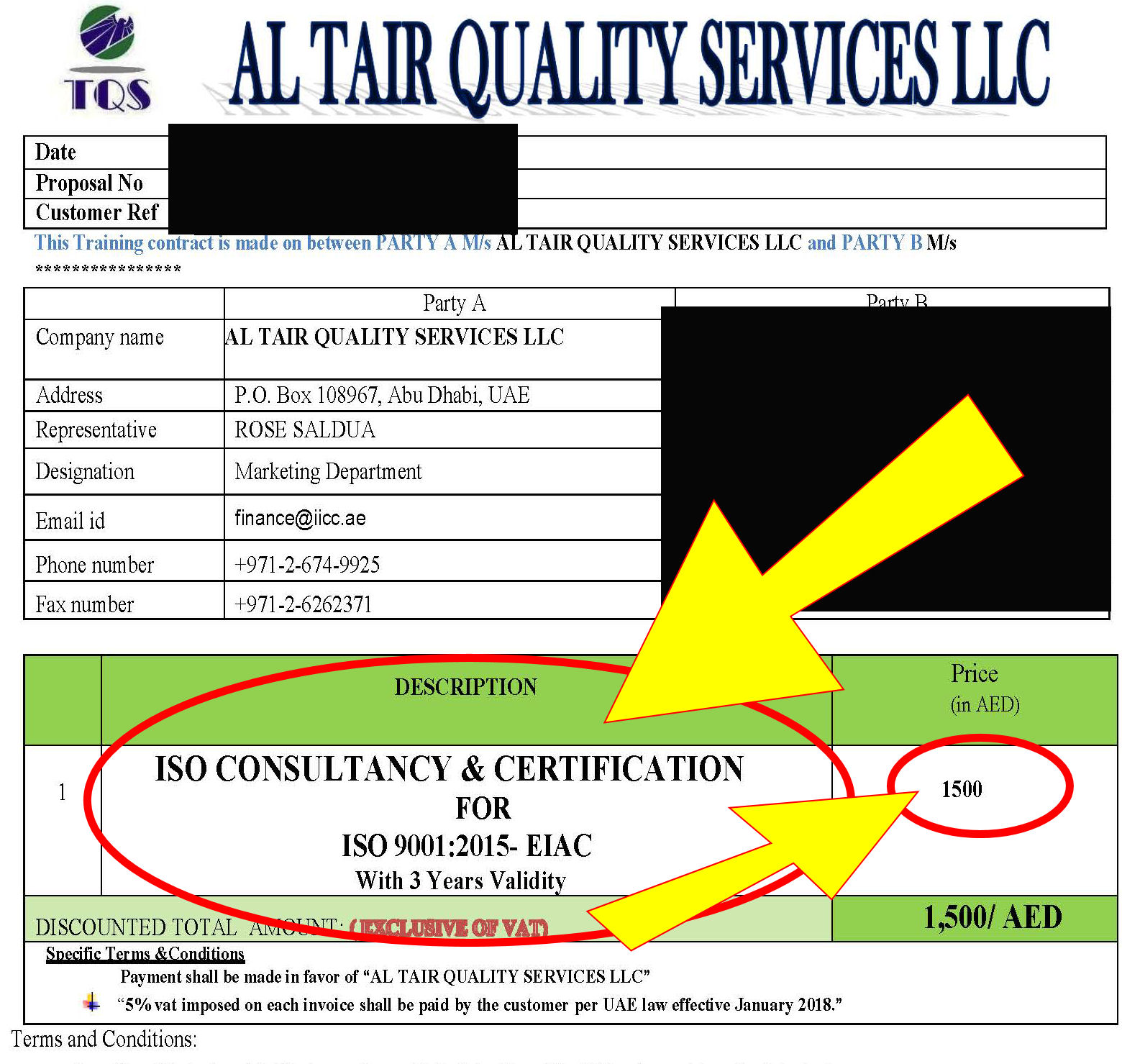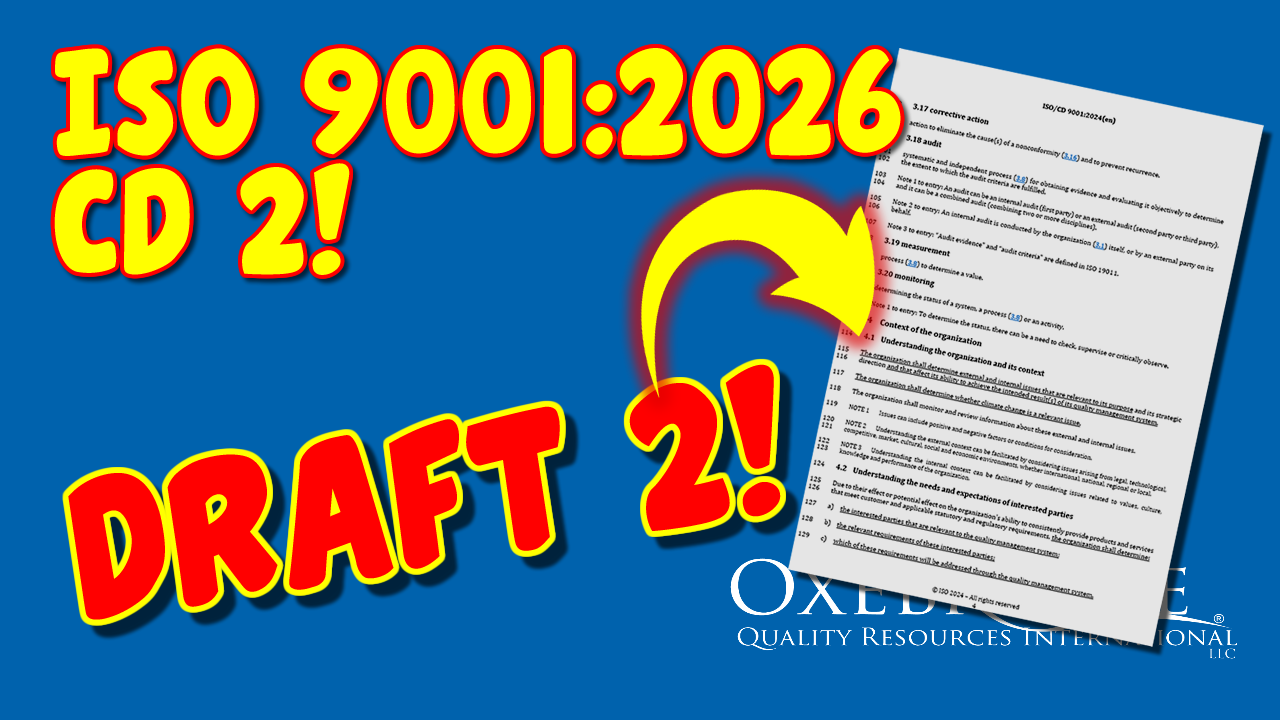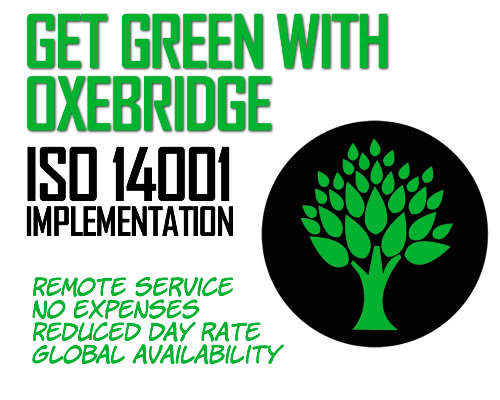A new ISO Whistleblower Report revealed that despite the parties claiming to have resolved a conflict of interest in 2020, the certification body QRS and United Arab Emirates accreditation body EIAC may have instead colluded to hide the problem.
In 2020, Oxebridge received a valid ISO Whistleblower Report that showed QRS working with the consulting body Al Tair Inspection Services (ATIS), which provided ISO consulting and certification packages in violation of accreditation rules. QRS is accredited by EIAC under ISO 17021, which prohibits CBs from working with consultants. In response, EIAC temporarily suspended QRS’ accreditation, and QRS then claimed to have cut off all ties with ATIS. Satisfied with this resolution, Oxebridge closed the complaint and EIAC restored QRS’ accreditation.
 Now comes new evidence that the relationship was never severed at all, and EIAC — which operates as an official agency with the UAE government — must have been aware of this fact. A new whistleblower has now provided evidence that as recently as two months ago, in December of 2021, ATIS, under the name “Al Tair Quality Services”, was still selling combined consulting and certification audits on behalf of QRS. Both ATIS and “Al Tair Quality Services” utilize the same address in the National Cinema Building in Abu Dhabi.
Now comes new evidence that the relationship was never severed at all, and EIAC — which operates as an official agency with the UAE government — must have been aware of this fact. A new whistleblower has now provided evidence that as recently as two months ago, in December of 2021, ATIS, under the name “Al Tair Quality Services”, was still selling combined consulting and certification audits on behalf of QRS. Both ATIS and “Al Tair Quality Services” utilize the same address in the National Cinema Building in Abu Dhabi.
Further research shows that Al Tair has been selling ISO certifications under the name “TQS”, which is actually a front for QRS. In addition, the company has used another name, “IICC.” for the same purposes for at least twelve years. Audits sold by the Al Tair / TQS / IICC companies are then performed by QRS. The scope of the scandal, and the amount of time this has been going on, make it nearly impossible that EIAC would not have known about it. EIAC is required to conduct annual “witness audits” of QRS to ferret out such corruption. Only if EIAC was entirely incompetent could their inaction be explained.
Furthermore, the new evidence shows that QRS ignored mandatory audit duration requirements, and conducted a two-stage audit that only lasted minutes, rather than the required days. According to emails received by Oxebridge, the scheduled Stage 1 audit was performed over one 90-minute Zoom session; two days later, the Stage 2 audit was conducted over Zoom as well, and also took only a half-hour. No portion of the audit was conducted on-site.
One day later, QRS provided an ISO 9001 certificate without waiting for any response to two “minor nonconformities” issued during the audit.
The full price for both consulting and “instant” certification was only 1,500 UAE dirhams, or about $400 US. The price was for the full three-year certification period, covering future surveillance audits for 2023 and 2024. Despite the contract being only for ISO 9001 certification, QRS then offered the client ISO 14001 and ISO 45001 certificates as well.
The original 2020 complaint related to corruption by QRS conducted in Qatar. The repeat scandal reveals the problem in the entire Middle East region, where companies buy fraudulent ISO certificates from allegedly “legitimate” certification bodies which hold full accreditation under EIAC. EIAC, a government department falling under the Ministry of Trade, appears entirely incapable of excising the corruption under its watch.
Whereas previously, EIAC appeared to have taken action by suspending QRS’ accreditation, the fact that the practice continues in full view of regulators and accreditation bodies suggests that EIAC only took the action to placate Oxebridge. The ruse worked, as Oxebridge had closed the 2020 complaint against QRS without escalation.
In reality, none of the parties — QRS, EIAC, nor ATIS — had taken any actions, and the malpractice continued unabated.
Oxebridge has filed a formal complaint to EIAC on the matter, and has already reached out to the United Arab Emirates Ministry of Economy, which oversees EIAC. The Under Secretary for Foreign Trade & Industry, H. E. Abdulla Ahmed Al Saleh, sits on the Board at EIAC.
UPDATE 28 February 2022: EIAC has ignored the complaint filing entirely, in violation of its own published complaints handling procedure. The matter has been informally escalated to the Asia Pacific Accreditation Cooperation (APAC) which is tasked with ensuring ISO 17011 compliance by accreditation bodies. ISO 17011 requires that formal complaints be acknowledged as received, and the complainant updated on progress.







